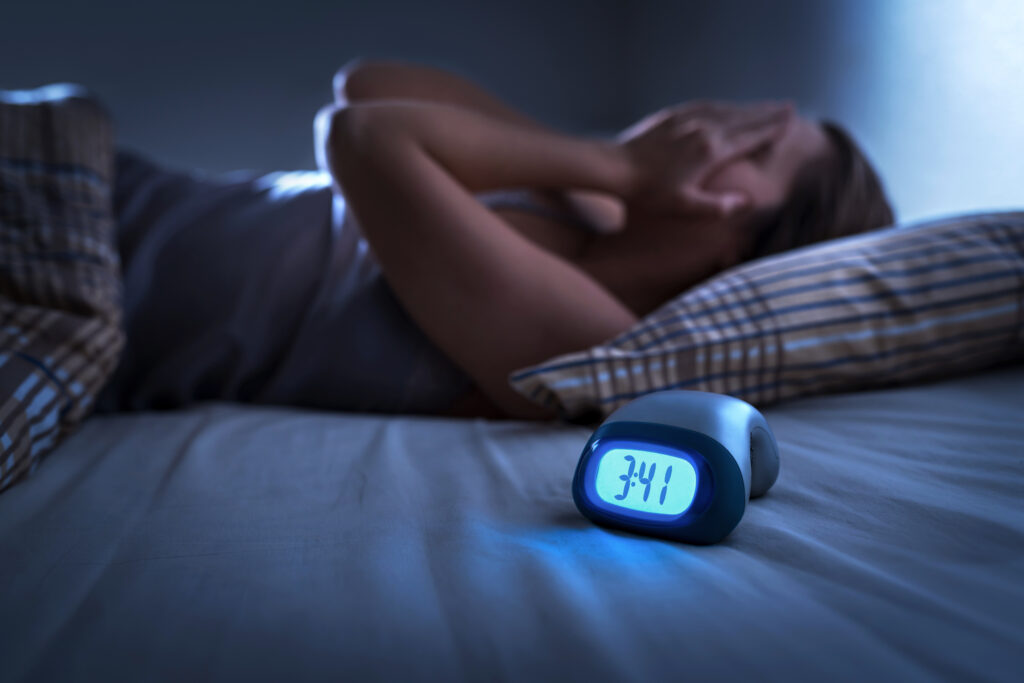By Suvarna Palla, M.D., neurologist and sleep specialist, The Portland Clinic

Not everyone with sleep problems has a sleep disorder. Sometimes you just need a refresher on good sleep hygiene. That means cleaning up any habits that might be messing with your sleep, and possibly adopting new habits to improve sleep.
Check your own habits against these 17 tips for right before bed, in bed, and life in general. Are you missing anything? Most people who commit to good sleep hygiene find that they sleep much better.
Life habits for better sleep
1. Go to bed and get up at the same time every day
Hit the sack at the same time every night (give or take 30 minutes), and get out of bed at the same time every morning. A consistent wakeup time is especially important to train your body when to be awake, and to reinforce your sleep drive at bedtime.
2. Avoid long, late naps
If you find a nap helpful, keep it short – about 20 minutes or less – and sneak it in before 3 p.m. Longer naps, later in the day, can interfere with your sleep at night and lead to insomnia.
3. Exercise regularly
As little as 10 minutes of exercise per day can help you fall asleep faster and sleep better; 30 minutes is even better. If you have insomnia, avoid vigorous exercise within three hours of bedtime. Read more about exercise timing and sleep.
4. Get more light during the day, not at night
Light has a profound influence on sleep, affecting circadian rhythms (your body’s 24-hour clock), production of melatonin (your natural sleep hormone), and the depth and quality of sleep. For the best sleep, get more daylight in the morning and throughout the day; start dimming your lights 2-3 hours before bedtime; and keep your bedroom as dark as possible.
5. Keep your bedroom cool, quiet and comfy
Set your bedroom thermostat at a cool, comfortable temperature. Keep the room quiet, or use a fan or white-noise device to mask ambient sounds. If you’re uncomfortable, consider a new pillow or mattress pad.
6. Spend less time in bed
More time in bed does not necessarily mean more sleep. Often, the reverse is true: too much time in bed can cause more difficulty falling asleep, and more awakenings in the night. Read more about sleep restriction.
7. Change your mind
Much of sleep hygiene is about changing your thoughts and behaviors so that, once you climb into bed, your mind automatically cues your body that it’s time to sleep. All of these tips can help you do that.
Before bed – set the stage for good sleep
8. Eat earlier, and lighter
Eating a large dinner or eating right before bed will activate the digestive system, which can keep you up, especially if you suffer from acid reflux.
9. Avoid caffeine and nicotine at night
Both caffeine and nicotine are stimulants that make it harder to fall asleep and to get restful sleep. Avoid coffee, chocolate, caffeinated teas and sodas, and tobacco products for 4-6 hours before bedtime.
10. Don’t drink alcohol close to bedtime
While alcohol may help you feel drowsy at first, it can lead to frequent arousals and unrestful sleep later in the night. To avoid sleep disruptions, don’t drink alcohol within three hours of bedtime.
11. Restrict fluids before bed
If you wake up throughout the night to use the bathroom, try restricting your fluid intake after 6 p.m.
12. Write down your worries
If anxiety tends to keep you awake, writing in a journal before bed may help clear your head of nagging thoughts.
13. Establish a relaxing pre-bedtime routine
Give yourself at least an hour of relaxation time in the evening to shake off the day. Try meditation, mindfulness exercises, breathing techniques, progressive relaxation, yoga or other activities that calm and soothe you. An hour before bedtime, prepare your mind and body for sleep by dimming the lights, turning off the electronics, changing into your pajamas, taking a warm bath or curling up with a good book – whatever helps you settle down.
In bed – put your mind at rest
14. Don’t watch TV, use your phone or read in bed
The light from screens hinders sleep. In addition, watching TV, using your phone, and even reading a book can activate your mind – the opposite of what you need when it’s time to snooze.
15. Bore yourself to sleep
If you do need to read or listen to something to lull you to sleep, make it something calm, boring and familiar, and limit it to 10 minutes.
16. Don’t stress about sleep
Worrying about not being able to sleep only makes it harder to sleep. So, let go of the worry. You can’t force sleep. Focus, instead, on how nice it feels to lie in your bed, to relax your muscles, and to think about nothing at all.
17. If you’re still awake after 20 minutes, get up
If it takes you more than 20 minutes to get to sleep – or back to sleep – get out of bed. Move to a comfy chair, keep the lights low, and read or listen to something dull until you feel sleepy again. Most importantly, regardless of how little you sleep, get up at your regular time in the morning to get back on track.
If poor sleep is affecting your daily life, talk to your primary care provider to rule out any underlying sleep disorders or medical problems. The Portland Clinic Sleep Center offers consultations, diagnostics and treatment for all kinds of sleep disorders. Treatment can be very helpful – and it’s most effective when good sleep hygiene is in place.


